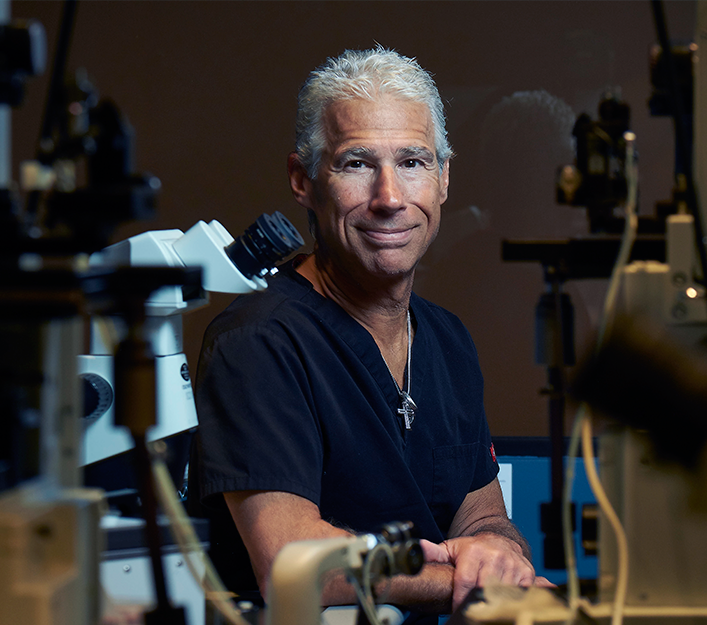We include products in articles we think are useful for our readers. If you buy products or services through links on our website, we may earn a small commission.
17 Keto Myths: Debunked
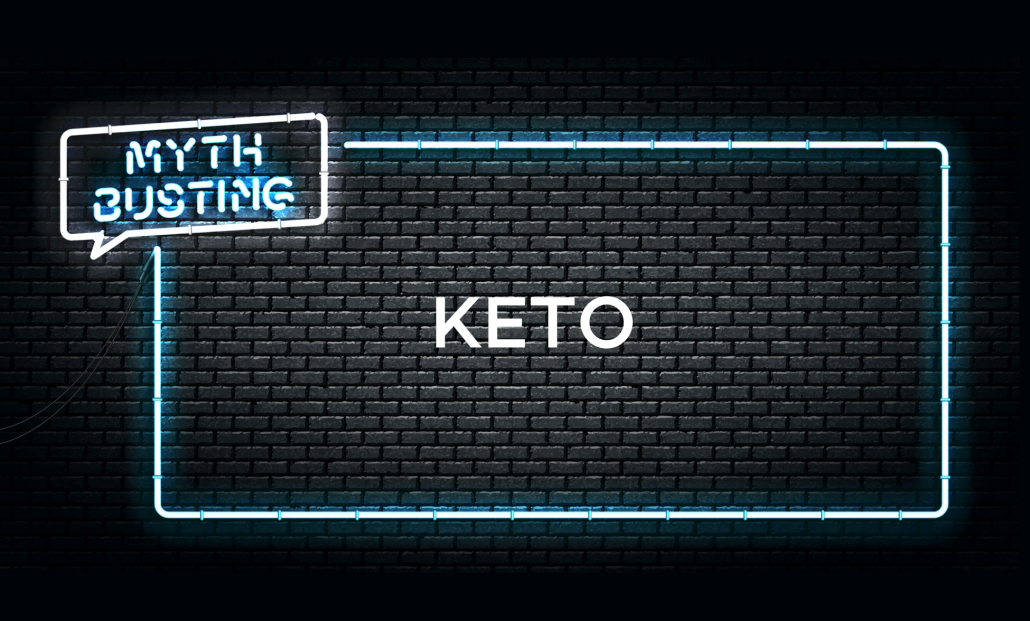
Keto turns many mainstream nutritional guidelines upside down, so it’s no surprise that there are a lot of keto myths out there based on decades of misinformation, and kneejerk skepticism.
Let’s take a look at the 17 most common keto myths, what they get wrong, and what you need to know to set the record straight.
Table of Contents
Eating Fat Makes You Fat
From a caloric perspective, this makes sense. Dietary fat contains 9 calories per gram. Carbs and protein contain only 4 calories per gram. In theory, eating more fat means eating more calories, which causes you to gain weight, right?
Wrong. This idea that all calories have the same impact on your weight and metabolism is dangerously misinformed. And it leads to many of the recommendations–namely eating less fat and more carbs–that make people fat and sick.
To understand why let’s follow the metabolic dominoes.
Carbohydrate Intake
The first domino falls when you eat carbohydrates–and remember all grains, fruits, and vegetables are carbohydrates. During digestion, nearly all carbs get broken down into simple sugars that raise blood sugar levels.
Insulin Spike
The next domino to fall is the spike in insulin that the body sends in to the blood to deal with all that sugar. Insulin drives glucose into cells and converts excess sugar into fat. This fat accumulates in and around your organs and shows up on your bottom and belly.
But instead of making you satiated, elevated insulin levels trigger more hormones that increase hunger, and heighten the perceived pleasantness of sweet tastes.
Carbohydrate Insulin Model
This process where eating sugar makes you fat and more hungry may at first seem counterintuitive. But seen from the perspective of dietary evolution, it makes sense.
For most of human history, sweet foods and carbohydrates of any kind were extremely rare. Essentially none of the fruits and vegetables that we have today existed in the natural environments of our hunter-gatherer ancestors.
So on the rare occasions when our ancestors came across a fruit-bearing tree or a beehive, their bodies told them to eat as much as possible and store as much fat as possible. Their bodies would use this stored fat for energy during leaner times.
But modern living is anything but lean. In fact, it’s a buffet of carbs. So here we are, stuck on the carbohydrate-insulin-fat-hungry carousel.

When we eat more fat an entirely different metabolic process takes place. Fats are far more satiating, they take longer to break down supplying more sustained energy, and they don’t raise blood sugar or insulin levels.
What the Studies Say
In human experiments, subjects who ate high-fat diets had a significantly faster metabolism. Whereas the low-fat high-carb groups demonstrated insulin spikes that slowed metabolism and increased belly fat.
Harvard researcher Dr. David Ludwig ran a controlled feeding study that provided all the food and switched the groups so the same subjects were monitored on both diets. Ludwig and colleagues found that the high-fat group burned 300 more calories a day than the low-fat group.
The high-fat group also showed superior improvements in cholesterol, lowered triglycerides, lower LDL. The study also showed lower levels of PIA-1 signaling less likelihood of having blood clots or inflammation. Finally, the high-fat low-carb group also showed bigger improvements with insulin resistance.
Keto will Raise your Cholesterol
A keto diet generally means consuming more dietary cholesterol than a standard American diet based on grains, fruits, processed plant oils, and veggies. For this reason, it can raise false alarms around cholesterol levels in the blood.
These fears are founded on the debunked idea that the cholesterol we get from food (dietary cholesterol) raises blood cholesterol levels in unhealthy ways. Numerous high-quality mainstream studies clearly show that there is no evidence that the cholesterol we get from our food increases blood cholesterol levels
This is because your body can make around 75% of its cholesterol on its own. If you’re not getting much cholesterol from your diet, your body produces most of what you need. If you’re eating lots of cholesterol-rich foods, your body doesn’t need to make as much.
But for people subjected to decades of misinformation, the truth can be hard to accept. Especially when starting out on a diet with many unjustly demonized foods like red meat, dairy, and eggs.
So what actually happens to cholesterol on HFLC diets? For most people, there is a slight increase in overall cholesterol due to an increase in heart-healthy HDL. Bad LDL particle concentrations decrease (LDL-P). While the size of LDL cholesterol particles increases–all good things for cardiovascular health.
At the same time, Dangerous VLDL cholesterol concentrations in the blood generally decrease as well. When we weigh all the evidence, the benefits of HFLC diets on cholesterol levels greatly outweigh the negatives for most people.
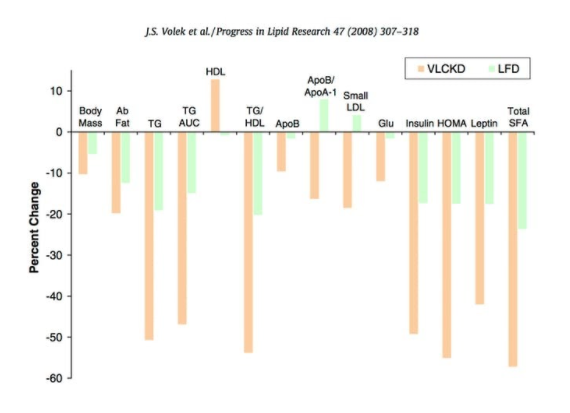
If you have a genetic predisposition or a history of elevated cholesterol levels or heart issues, we advise undertaking an HFLC diet with the supervision of your doctor.
Red Meat is Bad for You
Though it’s possible to eat a keto diet without red meat, or any meat at all, many people make red meat a low-carb staple. And for good reason. Red meat, especially organ meats, contains all the fat, protein, vitamins, and minerals that humans need to thrive, and in near perfect proportions for our bodies.
This is because we are evolved to eat and thrive on meat. For our hunter-gatherer ancestors, meat was the only food available in all seasons for nearly all people everywhere in the world.
What about the studies linking red meat and disease?
Previous studies linking red meat and disease are all observational, meaning that they cannot prove cause and effect. A recent analysis of these past studies published in the Annals of Internal Medicine finds that the evidence supporting the idea that eating less red meat is good for us is “low to very low.”
These observational studies have four main problems:
- They don’t distinguish fresh red meat from processed meats.
- They don’t adequately control for lifestyle choices with much greater impact on health including exercise, smoking, and drinking.
- They ask for participants to remember and report how much, and what they ate 2-4 years in the past. Can you remember what you ate last week?
- Observational studies are best understood as a tool for creating theories that could actually be tested with randomized controlled trials. Yet they’ve been inappropriately used to make sweeping recommendations.
In the few randomized control trials with head-to-head comparisons of low-carb meat diets against non-meat diets, we see that diets high in red meat result in dramatically better health outcomes.
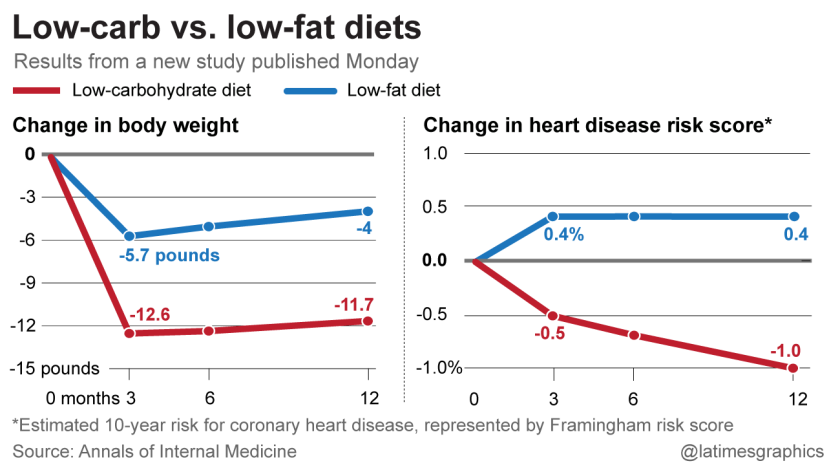
Sourced from: LATimes
When considering red meat nutrient content, the evolution of the human diet, and high-quality randomized control trials, we find that the idea that red meat is bad for you is just a keto myth. In all likelihood, red meat is very good for you.
Read our comprehensive guide to red meat here, and learn about the benefits of organ meat superfoods here.
Saturated Fat Will Clog Your Arteries
For decades saturated fat has been given a bad rap for its purported negative effects on heart health. But with recent, higher-quality studies, these misconceptions are being revised.
A bellwether 2020 paper published in the prestigious Journal of the American College of Cardiology, concluded that,
“Whole-fat dairy, unprocessed meat, eggs, and dark chocolate are SFA-rich foods with a complex matrix that are not associated with increased risk of cardiovascular disease. The totality of available evidence does not support further limiting the intake of such foods.”
It doesn’t get more clear or explicit coming from one of the most respected medical journals. The researchers came to these revolutionary conclusions after looking at all the variables in past studies and comparing them to recent studies that control for things like the amount and types of foods people were eating. Some of the most important factors that they looked at were the sources of saturated fat, and how the rest of a person’s diet changes when they increase saturated fat.
In earlier studies, saturated fat from a steak could be counted the same way as saturated fat in processed low-nutrient junk foods like cookies and baked goods which are also packed with sugar and all sorts of unnatural ingredients.
There is a metabolically significant difference between saturated fats in meat, and fats made from hydrogenated vegetable oils. There’s also a major difference between eating saturated fat along with loads of sugar and eating saturated fats while cutting out carbs.
When you consider these metabolic factors along with the science showing positive cholesterol levels on low carb diets, it becomes clear that the risk of saturated fat is misguided when enjoying a well-formulated HFLC diet.
Vitamin Deficiencies
The foods around which a well-formulated HFLC is based are super nutritious. Take eggs for example–they’re widely considered one the most nutrient complete food on earth. Red meat, fatty fish, organ meats, are all extremely nutrient-dense.
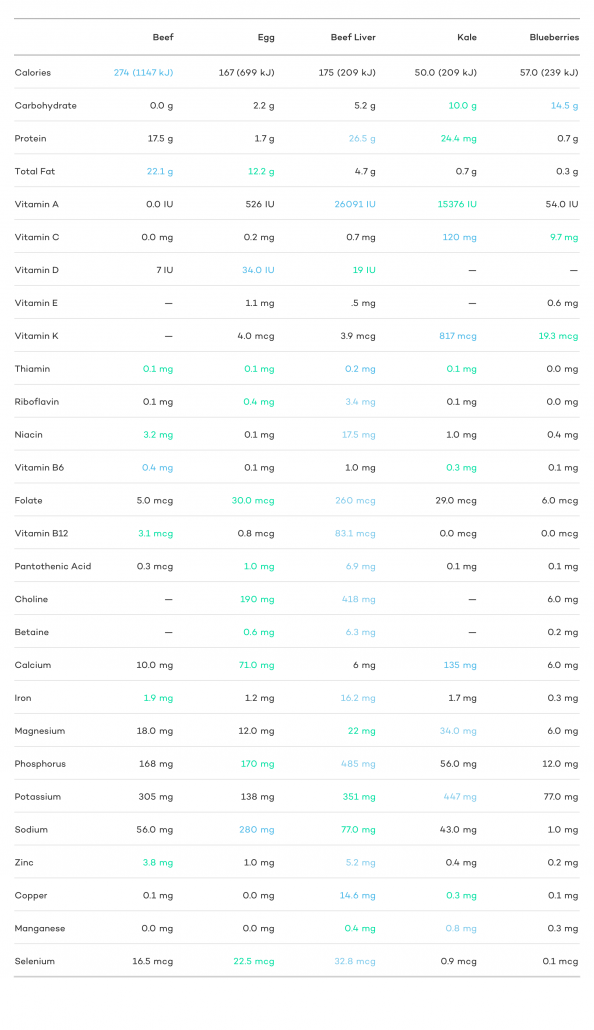
On an HFLC diet, you’re replacing high-calorie low-nutrient junk like pasta, rice, bread, and starchy tubers, with whole foods packed with healthy fats, proteins, and hard-to-get bioavailable micronutrients.
By cutting out grains and legumes you’re ridding your diet of plant toxins like phytic acid and oxalates that actually deplete nutrients. And by choosing full-fat dairy over low-fat alternatives you’re getting all the fat-soluble vitamins that you were missing out on.
In addition, studies show that an all-meat carnivore diet with no plants or fruits of any kind, can provide all the micronutrients you need, including vitamin C.
The bottom line is that a well-formulated HFLC diet is far more likely to significantly increase your vitamin and mineral intake.
Salt is Bad for You
When you’re in ketosis your kidneys excrete large amounts of sodium into the urine. In addition, you’re likely cutting out processed foods loaded with salt. To rebalance electrolytes many doctors familiar with keto recommend consuming 12 grams or 2 tsps of salt per day in the first few days of adapting to keto. Once adapted it’s recommended that you consume at least 5 grams, or just about 1tsp everyday to avoid headaches, fatigue, and constipation.
But isn’t salt bad for you?
Nope, but you’d be forgiven for thinking so. The American Heart Association recommends consuming less than 2.3 grams and ideally no more than 1.5 grams of sodium per day to support heart health. However, their recommendations are based on a minority of observational trials (not randomized controlled studies) that show a small drop in blood pressure in a few subsets of people. Additionally, there is no evidence to support that this small drop leads to fewer deaths or heart attacks. The benefits were merely assumed.
These same studies showed that increasing potassium in diets also reduced blood pressure and negated any benefit from cutting back on sodium.
Many other observational studies suggest that the optimal sodium intake is between 3 and 6 grams per day and that getting less sodium may be bad for your health.
When looking at the available evidence, one begins to wonder why we’re told to restrict an essential electrolyte, when the real culprit, the carbohydrates that we get from grains, fruits, and veggies, are touted as healthy.
Increasingly, scientists are asking this same question and finding that carbs are in fact worse than salt for raising our blood pressure levels and increasing chances of heart disease risk, while at the same time finding that too little salt is harmful.
Keto Makes you Constipated
For some of us, the digestive system may take time to adjust to an HFLC diet, and constipation can show up as a symptom. But it’s probably temporary. You can alleviate constipation by drinking more water and adding more salt to your diet.
Though the fat and proteins in meats are complex and take longer for the body to pull apart and metabolize, they are in fact completely and easily digestible for most people.
It’s important to take note that if you’re just pooping less and you don’t feel bloated or have abdominal pain, then it’s likely that you’re not actually constipated. Part of the reason for pooping less that you’re giving your body exactly the complex foods it needs, so there’s not as much indigestible junk (and fiber) for your body to expel.
If you are indeed bloated and constipated, it’s likely that you’re relying on too many difficult to digest foods to meet your keto macronutrient goals. Fibrous plant foods like nuts, low-starch vegetables, especially crucifers, and full-fat dairy products are three of the most constipating foods on any diet. Reducing fiber and replacing these with more whole animal meats will likely reduce constipation.
At this point you might be saying to yourself, wait, isn’t fiber good for you? Read on to learn why the answer is likely a resounding, no.
Reducing Fiber is Bad for You
We’ve all been told the story that fiber relieves constipation, protects the colon, and keeps the heart healthy. However, the evidence just doesn’t back up these claims. In fact, it may be the case that fiber is completely unnecessary and possibly harmful.
Fiber is by definition mostly or completely indigestible. Fiber from plants ferments in our bodies as it breaks down. When you chew fiber, you simplify it and expose it to bacteria and yeasts that feed on it during the process of digestion. Fermentation of plant materials produces heat, gas, aldehyde, alcohol, and methane. This exothermic reaction heats and damages local organs and tissues.
When we look past the propaganda and examine what the high-quality studies actually tell us, we find that fiber causes constipation. The authors of a 2012 study published in the World Journal of Gastroenterology looking at the effects on fiber on constipation found,
“the previous strongly-held belief that the application of dietary fiber to help constipation is but a myth. Our study shows a very strong correlation between improving constipation and its associated symptoms after stopping dietary fiber intake.”
Another eye-opening study in the WJG looking at all the studies over the previous 35 years investigating the link between fiber and colon health, concluded that:
“A strong case cannot be made for a protective effect of dietary fiber against colorectal polyp or cancer. Neither has fiber been found to be useful in chronic constipation and irritable bowel syndrome. It is also not useful in the treatment of perianal conditions. The fiber deficit-diverticulosis theory should also be challenged…we often choose to believe a lie, as a lie repeated often enough by enough people becomes accepted as the truth. We urge clinicians to keep an open mind. Myths about fiber must be debunked and truth installed.”
Will I get Ketoacidosis?
Nope. It’s easy to mix up ketosis and ketoacidosis. Ketoacidosis mainly afflicts Type1 diabetics if they don’t take insulin. Without insulin blood sugar and ketones spike, causing the blood to become acidic, which interferes with liver and kidney function.
Ketosis, on the other hand, is the normal and healthy presence of ketones in the blood. The blood is not acidic. Ketosis is a metabolic state that humans are evolved for. It occurs when cutting carbs and when fasting, and is natural, stable, and safe.
Evolving the ability to enter ketosis was crucial for the development and survival of our species when we began eating mostly meat. The meat we ate back then was mostly fat and nutrient-packed bone marrow and organs. When hunts were unsuccessful the body entered a fasted state where it used fat stores for fuel.
This is why most of us have a tendency to carry around a spare tire or a plump behind. These physical features are the human version of the humps on a camel’s back, which, surprise, aren’t filled with water, but with fat!
In light of our evolutionary eating and hunting patterns, many scientists believe that the majority of hunter-gatherer societies spent significant and extended periods in ketosis. What this means for modern humans is that ketosis is a metabolic state that our bodies are naturally designed for. Conflating keto diets with ketoacidosis is only a myth.
Your Brain Needs Carbs
The idea that your brain cells need you to eat carbs is a persistent keto myth. Though a third of your brain cells rely on glucose, you do not need to get glucose from carbohydrates in your diet.
The fact is that there are ZERO essential carbohydrates. In nutritional terms, “essential” means that your body cannot produce it on its own. When something is not essential, your body is capable of making all it needs. Carbs are not essential. The same cannot be said about proteins and fats–both of which are essential.
When you cut out carbs while eating keto, the glucose needed for certain brain cells is created by your body from fats and proteins in a process called gluconeogenesis.
Rather than starving the brain, keto has many positive effects on brain health and cognition. These were first discovered when a carb-restricted diet was used to successfully treat children with drug-resistant epilepsy.
Other studies show that large portions of our brains can be fueled by ketones alone, especially BHB. This ketone is a more efficient fuel than glucose, providing greater energy per unit of oxygen. BHB’s superior energy is promising when it comes to brain health because many brain disorders including dementia and Alzheimer’s share a deficiency in brain cell energy production.
| Glucose (Carb) Energy | 3-Hydroxybutyrate Ketone (Fat) |
| 8.7 kg of ATP per 100g | 10.5 kg ATP per 100g |
The energy produced by an HFLC diet can defend against disease stressors that would otherwise wear-out and kill brain cells.
Another way HFLC protects and restores our mental functions is by dramatically reducing your intake of carbohydrates. When carbohydrates are broken down, they produce highly reactive and harmful oxidants that can damage the brain.
You Need Fruits and Veggies in your Diet
Nearly as important as the nutrients you get from a ketogenic are the plant-toxins and antinutrients you remove when cutting fruits and veggies–especially when practicing a version of keto that leans towards the carnivore diet.
The idea that plants aren’t ideal foods might seem surprising at first, but consider things from the plant’s perspective; like humans and other living creatures, plants are here to survive and reproduce.
To achieve these goals plants are loaded with plant toxins. These toxins protect plants from pests (including us humans) and environmental threats like fungus and mold. Plant toxins include naturally-occurring pesticides, mineral chelators, and antibiotics.
Antinutrients are substances that prevent the body from absorbing nutrients properly. These substances can cause a net nutrient loss when absorption rates are considered. They’re the reason why your body does not absorb nearly all the iron and K1 that leafy greens like spinach are praised for.
Grains and legumes are also high in antinutrients, including phytic acid, which can reduce the absorption of crucial minerals including iron to calcium.
Additionally, plant foods contain phytoestrogens which can increase infertility and developmental disorders.
An animal-based keto diet also reduces plant fiber, which, as we see above, likely does harm without providing any real benefits.
Keto Isn’t Sustainable
Though keto may at first seem extreme, that’s only because it’s so radically different from the Standard American (Western) Diet. In reality, eating keto is in line with how humans are evolved to eat. When viewed in the context of human evolution, diets high in plant-based carbs and processed foods are the truly extreme departure from our natural dietary norms.
When viewing keto within an evolutionary historical perspective, it’s not surprising that studies support long-term keto.
A study looking at long-term keto for the treatment of obesity found many beneficial effects including significantly reduced body weight, decreased levels of triglycerides, LDL cholesterol, and blood glucose, and increased levels of HDL (good) cholesterol.
If you’re using keto to treat a health issue like epilepsy, combat neurodegenerative diseases like Alzheimer’s or Parkinson’s, balance chronic mood disorders, and reduce inflammatory diseases like PCOS and osteoporosis, sticking with keto long-term may be critical to your health and longevity.
For other people with no apparent health issues, practicing long-term, but less strict high-fat low-carb diets can give you cyclical infusions of ketones, and allow you to recalibrate hormone imbalances and inflammatory patterns.
If you’re thriving on a keto diet, there’s no reason to give it up. That’s only a keto myth.
Keto is Only for Losing Weight
Though keto has been proven effective for weight loss, it offers many other established benefits and exciting areas of research including:
- Combatting and reversing PCOS.
- Regulating appetite.
- Reversing diabetes and prediabetes.
- Enhancing many cancer therapies.
- Enhancing athletic performance by providing a long-lasting fuel supply.
- Seizure management.
- Slowing down progression of Alzheimer’s.
- Increasing longevity.
- Reducing the frequency and severity of migraines.
- Reducing anxiety 31
Keto Makes You Depressed
During the first week of transitioning to keto it’s common to experience depression-like symptoms including lethargy, brain fog, and irritability. The good news is that these don’t last long. And for many people these symptoms can be avoided entirely by drinking enough water and getting enough salt.
For others, there may be temporary feelings of sadness similar to what people experience when withdrawing from substances like nicotine or alcohol. This is because on keto you’re cutting out sugar. And sugar has been shown to be as addictive as cocaine, while stimulating the same rewards pathways in the brain.
In the long term, high-fat low-carb eating makes many people energized while increasing cognitive performance and mental endurance.
Keto is Bad for Gut Bacteria
Though keto causes changes to the ecosystem of bacteria in your gut known as your microbiome, the changes are likely good for you. Many people eating high-fat low-carb diets report less bloating and dramatically reduced GI issues.
This is likely due to a combination of 3 main factors:
- Reduction of abrasive and fermented plant fiber.
- Reduction of inflammatory plant-toxins.
- Reduction of blood glucose that exacerbates cells sensitized by inflammation.
A 2020 study published in Cell, found ketogenic diets to have a dramatic impact on the gut microbiota. The findings reveal that these changes reduce inflammation, and suggest that ketogenic diets could be used as a therapy for autoimmune disorders of the gut.
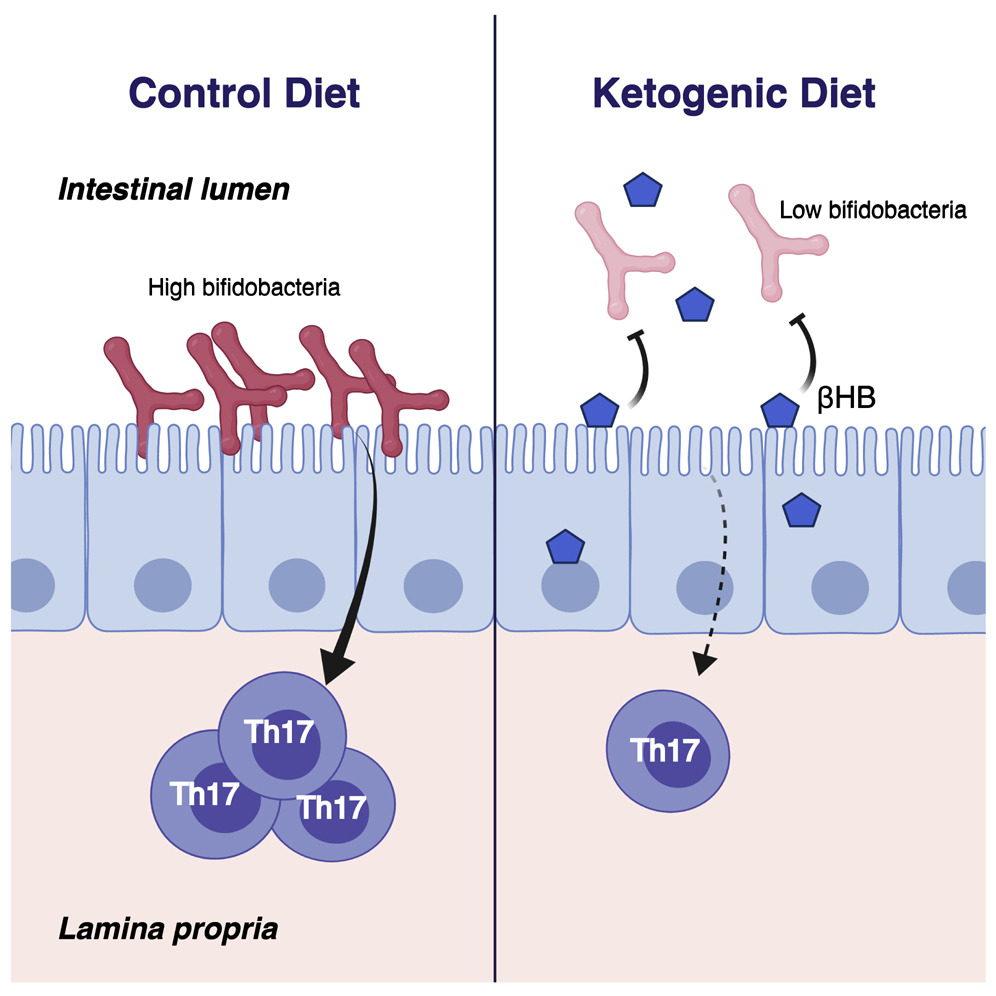
Other studies looking at the effects of ketogenic diets on people with multiple sclerosis and epilepsy find that keto results in beneficial changes in the microbiome.
You can learn more about the benefits of changing your diet to heal your gut here.
Keto can Give you Osteoporosis
There are false theories floating around that keto can lead to osteoporosis. They’re usually based on the unfounded idea that eating lots of protein makes the blood acidic, which is bad for bones.
However, studies show that low-carb eating does not affect blood PH. In fact, they show just the opposite. People who eat high protein diets generally have stronger bones. Not to mention, eating keto means getting only around 20% of calories from proteins, which makes it a moderate-protein diet.
Keto is Bad for Your Kidneys
Another common keto myth is that low-carb diets can harm the kidneys. Studies show that this is simply not true.
This rumor is based on the dual misconceptions that keto is high-protein, and that high protein is bad for your kidneys.
As mentioned above, keto is high-fat, moderate-protein. Secondly, if you have normal kidney function you can handle high amounts of protein with no problems. Even if your kidneys were damaged, a high-fat, low-carb diet would likely have no adverse health effects.
The Takeaway
High-fat low-carb diets present a radical challenge to mainstream Western, and Standard American Diets. This makes them prime targets for unfounded skepticism and misinformation.
That’s why, when it comes to keto it’s important to let the facts speak for themselves.
If you take medications, particularly blood pressure and psychiatric medications, the keto diet can so positively alter many of the underlying conditions that medications will need to be adjusted or discontinued. For these reasons, you and your prescriber will need to monitor your progress as you embark on your high-fat low-carb lifestyle.
Tallyho!










